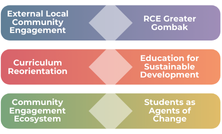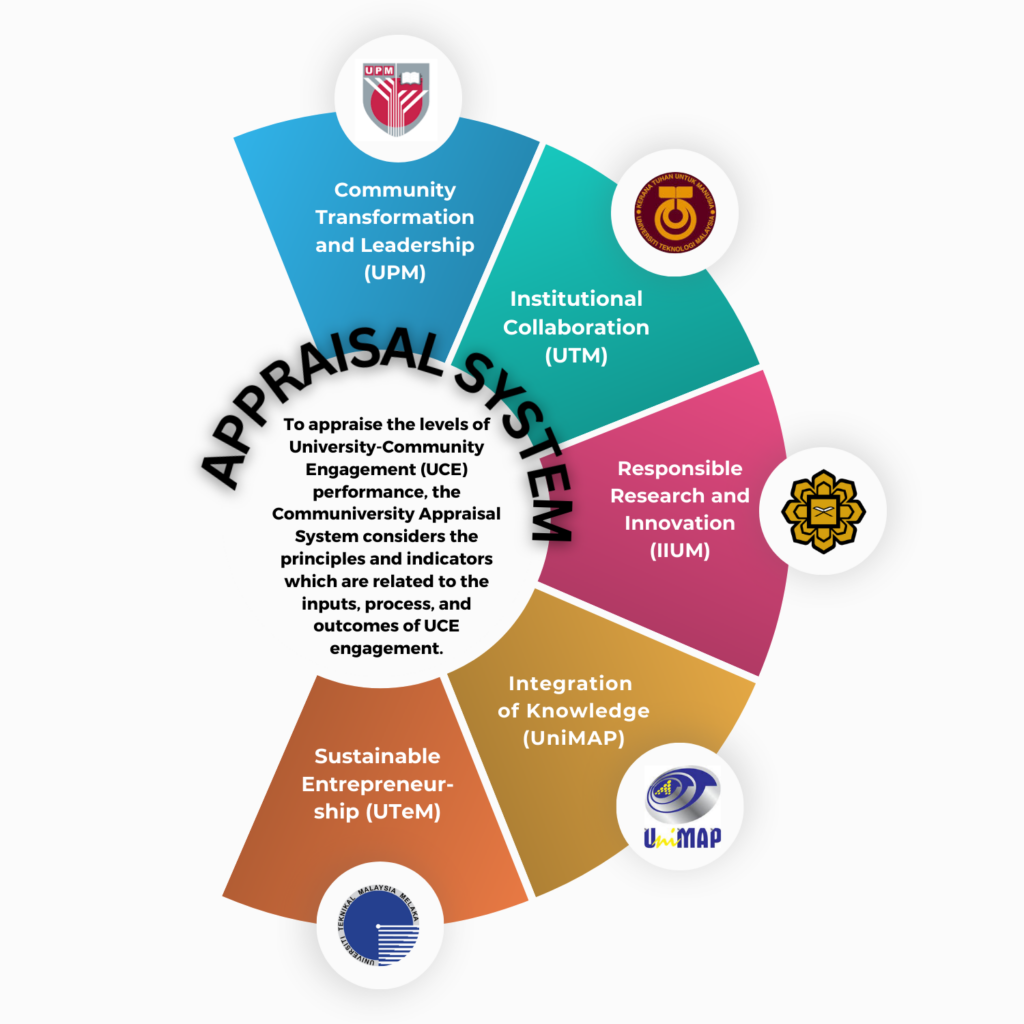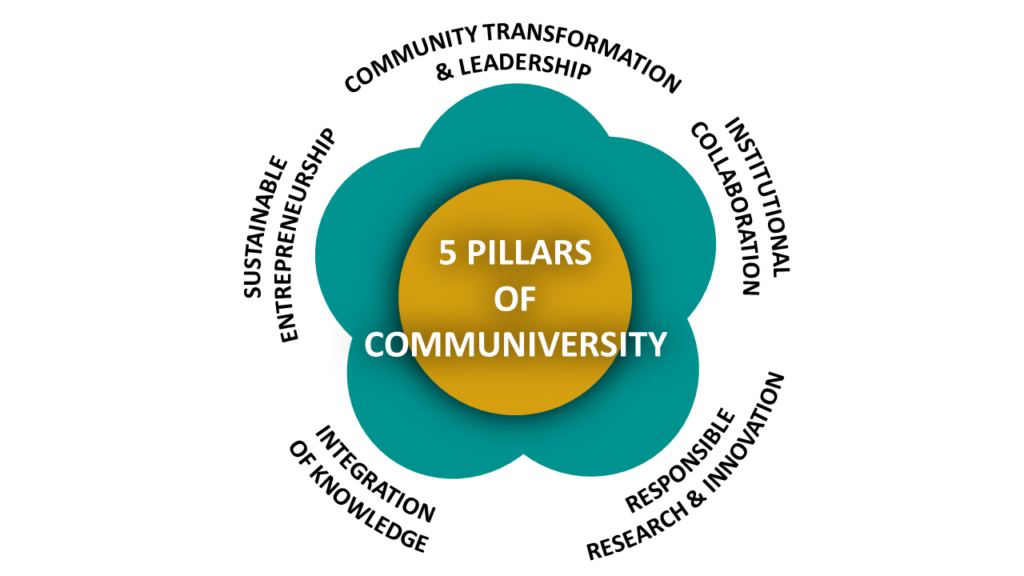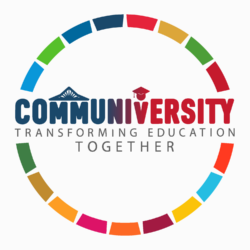The COMMUNIVERSITY agenda aims to put community transformation towards sustainable development at the heart of IIUM’s purpose, leaving no one behind in creating a harmonious ecosystem of balanced and holistic students, staff, and societies.
Striving to position the university at the forefront of bringing about impactful change to society, the agenda incorporates the Quintuple Model of multi-stakeholders’ collaborations to achieve Sejahtera as the local concept of Sustainability and meet the overarching goals of Sustainable Development Goals (SDGs).

Communiversity represents a transformative initiative aimed at democratising knowledge, shifting the focus from rankings to a more constructive approach by establishing a new university model.
APPRAISAL SYSTEM
To appraise the levels of University-Community Engagement (UCE) performance, the Communiversity Appraisal System considers the principles and indicators which are related to the inputs, process, and outcomes of UCE engagement.


Communiversity is a new model founded on the following five key fundamental reflective of the true essence of higher educational institutions:

- Community Transformation & Leadership involving Effective governance, engagement processes, and result-oriented strategies.
- Institutional Collaboration to humanise education on a Quintiple Helix model of the 5Ps of Agenda 2030, Institutions should strive for effectiveness in quadruple helix collaboration.
- Responsible Research & Innovation. Inclusivity, authenticity, community development, consideration of power dynamics, and the production of innovations incorporating indigeneity are paramount.
- Integration of Knowledge incorporating relevance to the community, exploration of social spaces and realities, transdisciplinarity of expertise, and the creation of living labs including indigenous knowledge and context.
- Sustainable Entrepreneurship focusing on the production of social innovation and creations, coupled with a commitment to sustainability.

The future of learning requires us to demonstrate resilience and agility as we navigate various challenges. Therefore, the future of lifelong learning in Malaysia requires more structured learning flexibility that can increase our resilience to the futures of education.
– Khaled Nordin
Minister of Higher Education of Malaysia (2022-2023)
WAY FORWARD:
PILOT TESTING & EXPANSION PLAN
As we gain valuable insights from the local and international engagements, a strategic plan for its pilot testing phase & expansion plan are in progress.
KEY STRATEGIES
- Comprehensive Feedback Collection: Engage with faculty, administrators, and students by gathering feedback, ensuring it effectively meets diverse needs.
- System Enhancement Prioritisation: Analyse feedback to prioritise improvements that align with system goals, enhancing user satisfaction and performance.
- Rigorous Performance Testing: Evaluate system scalability and reliability under increased loads, addressing technical issues to maintain stable performance.
- Training and Support Establishment: Develop comprehensive training materials and establish user support systems to facilitate effective system utilisation.
- Seamless System Integration: Ensure seamless data flow and compatibility with university infrastructure to maximise efficiency.
- Effective Communication Strategy: Implement a communication plan to inform stakeholders about expansion goals, fostering user involvement and awareness.
- Continuous Improvement Approach: Release updates based on ongoing feedback, encouraging user input for iterative development and continuous enhancement.